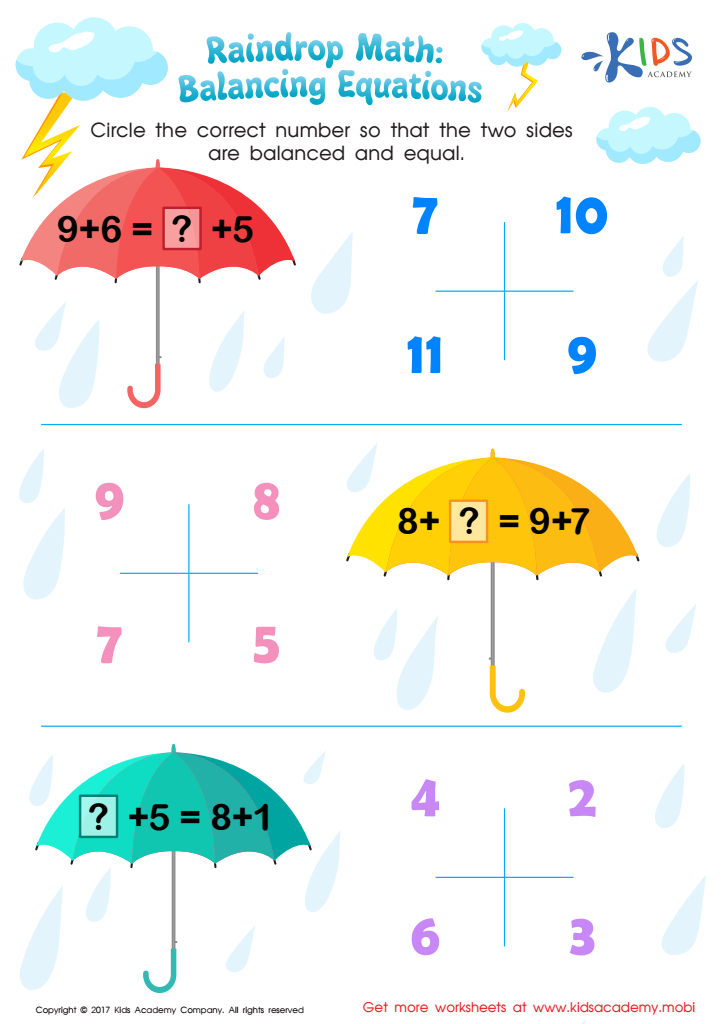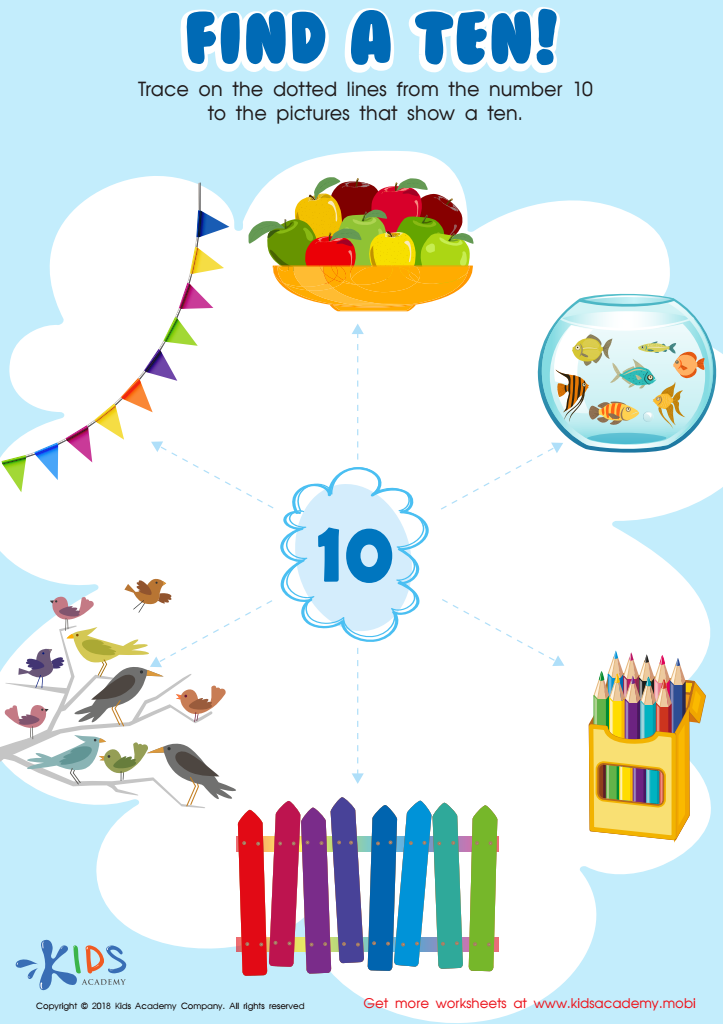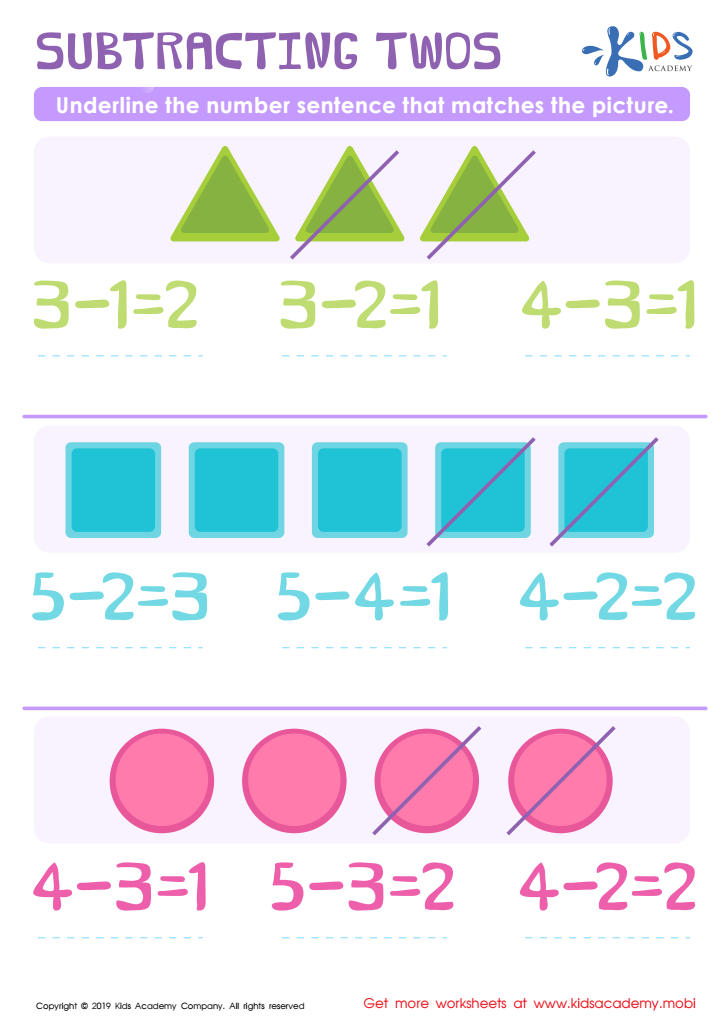Mental math practice Extra Challenge Worksheets for Ages 4-9
3 filtered results
-
From - To
Boost your child's math skills with our "Mental Math Practice Extra Challenge Worksheets" designed specifically for ages 4-9! These engaging worksheets provide a variety of fun, challenging activities that encourage mental computation, fostering critical thinking and problem-solving abilities. With colorful illustrations and age-appropriate exercises, your child will strengthen their math fluency while enjoying the learning process. Perfect for at-home practice or enrichment in the classroom, our worksheets cater to different learning levels as they explore addition, subtraction, and number patterns. Help your little learners excel in math with these delightful, stimulating challenges that make learning fun and effective!


Raindrop Math Printable


Kindergarten Math Worksheet: Find a Ten


Subtracting Twos Worksheet
Parents and teachers should prioritize mental math practice for children aged 4-9 because it lays essential foundations for mathematical understanding and cognitive development. Engaging in mental math enhances children's ability to perform calculations quickly and accurately without relying solely on calculators or written methods. This skill promotes number sense, which is critical for grasping more complex mathematical concepts later on.
Moreover, mental math encourages mental agility, cultivation of critical thinking skills, and boosts confidence in students’ mathematical abilities. Children learn to approach problems creatively, recognizing patterns and relationships among numbers. As a result, they become more adept at problem-solving, which is crucial not just in mathematics, but in everyday life situations as well.
Additionally, the practice also supports memory development and boosts concentration. By solving math problems mentally, children exercise their working memory and cognitive flexibility. Such skills are vital for their overall brain development and can positively impact performance in other academic areas.
Ultimately, mental math practice cultivates not just a mathematical mindset but promotes resilience and perseverance, essential qualities for lifelong learning. By supporting these practices, parents and teachers empower children to develop strong numeracy skills that will benefit them throughout their education and into adulthood.

 Assign to My Students
Assign to My Students

















